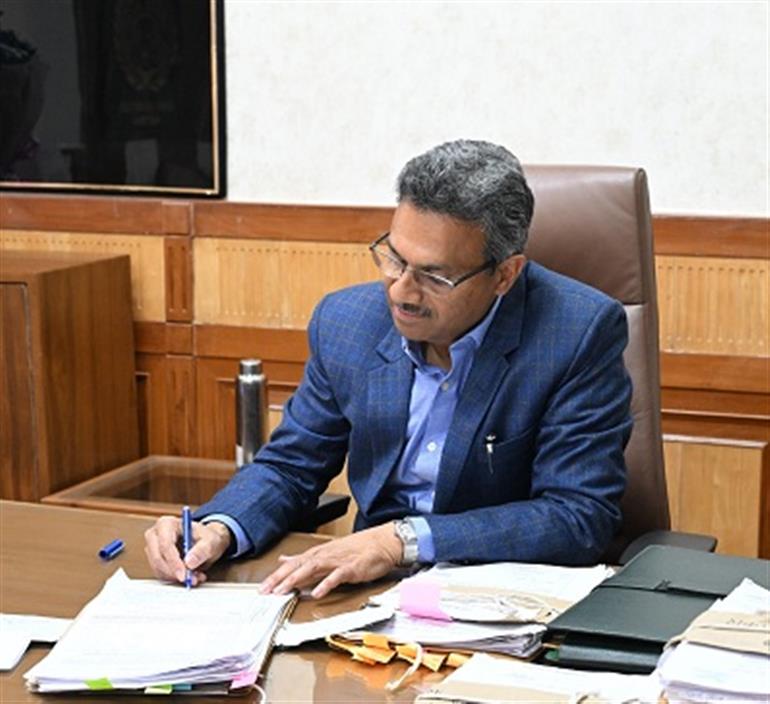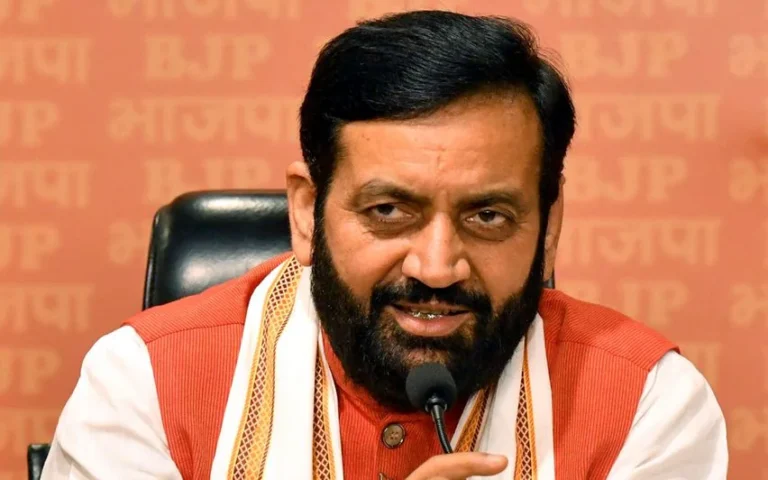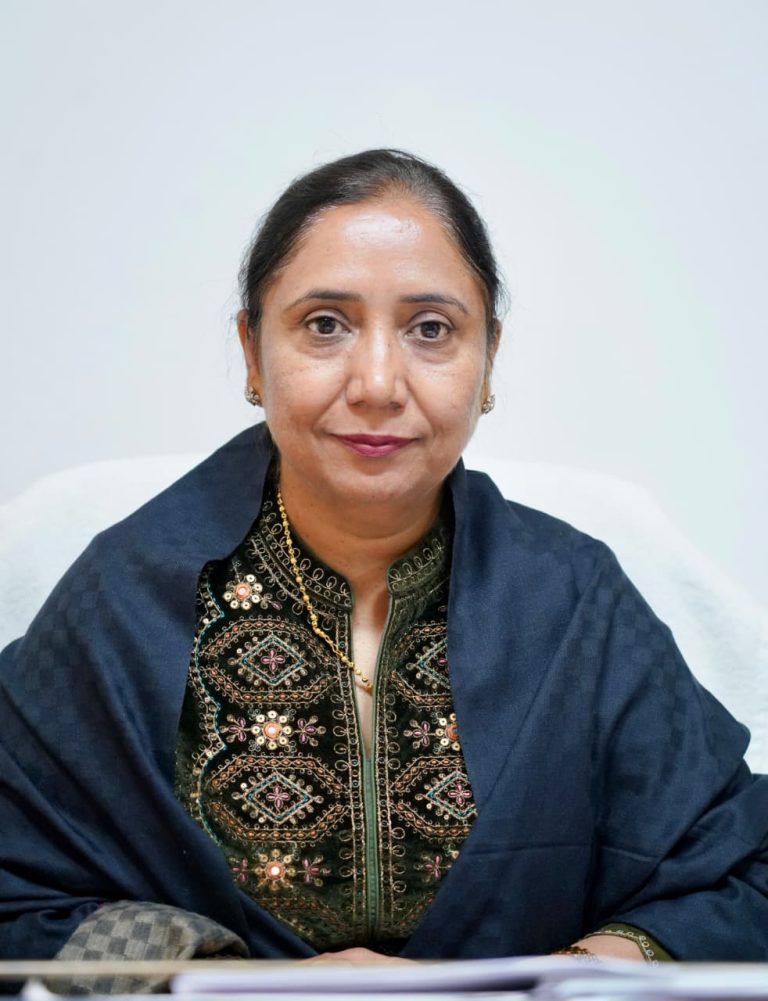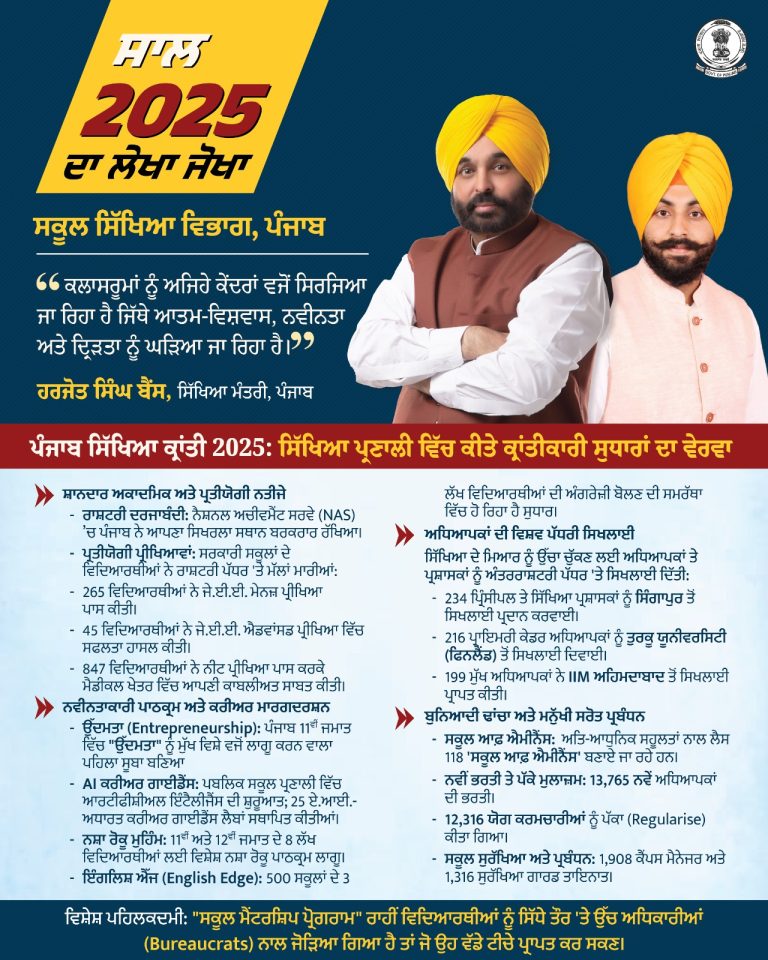
Chandigarh, November 10 – Haryana Chief Secretary Sh. Anurag Rastogi today stressed the urgent need to bridge the gap between loan sanctions and actual disbursements to beneficiaries, while chairing the 174th State Level Bankers’ Committee meeting in Chandigarh.
During the comprehensive review session, Sh. Rastogi urged banks to revisit their policies and ensure timely and adequate credit flow reaches farmers. The meeting brought together senior officials from various banks, government departments, and financial institutions to assess the state’s banking performance across multiple parameters.
The Chief Secretary appreciated the collaborative efforts of banks and government departments in promoting financial inclusion and supporting MSMEs, but emphasized that continued coordination between banks and district administrations remains essential for ensuring last-mile delivery of credit and financial services, especially in rural and aspirational blocks.
Sh. Rastogi sought detailed information from all banks regarding unclaimed government deposits and directed that a comprehensive report be submitted to the Commissioner and Secretary, Finance. The Chief Secretary held extensive interactions with bank representatives, addressing key operational issues and suggesting measures to improve financial outreach and efficiency across the state.
The meeting revealed encouraging progress on the financial awareness front, with campaigns titled “Your Money, Your Right” successfully activating over 825 dormant accounts, restoring ₹287.69 lakh to rightful beneficiaries. This initiative has gained significant traction in reconnecting citizens with their forgotten deposits.
On the financial performance front, data presented at the meeting showed Haryana’s banking sector continues its strong growth trajectory. Total deposits stood at ₹8,68,918 crore, while advances reached ₹7,69,537 crore as of September 2025. The state recorded impressive year-on-year growth of 12.48% in deposits and 14.36% in advances, reflecting robust economic activity and improved credit outreach across sectors.
The Credit-Deposit ratio improved from 87% to 89%, comfortably surpassing the national benchmark of 60%. Notably, all districts in Haryana achieved CD ratios above the national goal, indicating widespread and balanced credit penetration throughout the state.
Haryana’s banking network has expanded to 5,582 branches, marking a net addition of 230 branches during the year. Public sector banks account for 2,733 branches, private sector banks operate 1,941 branches, small finance banks have 218 branches, and Haryana Gramin Bank maintains 690 branches across the state.
Under Priority Sector Lending, banks achieved an impressive 121% of the half-yearly target, disbursing ₹1,89,741 crore against a target of ₹1,56,572 crore. While the Agriculture Sector recorded 99% achievement, MSME lending surged to 145% of its target, reflecting strong momentum in supporting small businesses and entrepreneurs.
The meeting also reviewed progress under various central government schemes. Under the PM Vishwakarma Scheme, 30,754 applicants have completed skill training, and banks have sanctioned over 7,000 cases. Distribution of 14,306 toolkits has been completed across various trades, empowering traditional artisans and craftspeople.
The PM SVANidhi 2.0 Scheme has gained considerable momentum, with major banks including SBI, PNB, and Bank of Baroda leading in loan disbursements to street vendors. The PM Surya Ghar: Muft Bijli Yojana is witnessing active participation in Haryana, with 34,799 applications received, of which 42% have already been disbursed, helping families transition to solar energy.
Under the Agriculture Infrastructure Fund, banks have sanctioned ₹931.8 crore, achieving 61% of the annual target, indicating steady progress in building agricultural infrastructure across the state.
On the digital banking front, Haryana continues to lead with 97% overall digital coverage for both savings and current accounts. Eighteen banks have achieved complete digitalization, making banking services more accessible and efficient for citizens across urban and rural areas.
The SLBC also discussed critical issues including the saturation of financial inclusion schemes, implementation of the Pradhan Mantri Fasal Bima Yojana, addressing unbanked rural centres, and strategies to enhance credit flow to weaker sections and small farmer segments.
Senior officials present at the meeting included Commissioner and Secretary, Finance, Mohammed Shayin, Executive Director of Punjab National Bank D. Surendran, General Manager, RBI Chandigarh, Pankaj Setia, Chief General Manager, NABARD-Haryana, Nivedita Tiwari, and SLBC Haryana Convener Lalit Taneja, among other dignitaries from the banking and government sectors.






